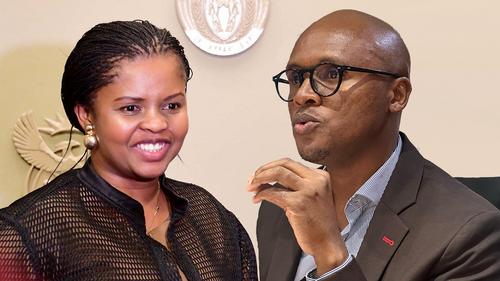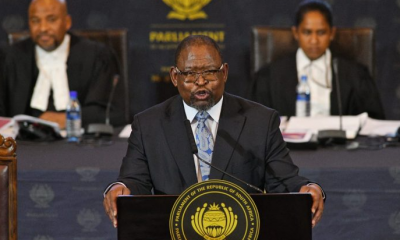411
ANC MP Khusela Diko Challenges BLSA CEO Over Call to End Sita’s IT Procurement Monopoly

The ongoing debate about the future of state IT procurement in South Africa has taken a sharp turn, with Khusela Diko, the Chair of Parliament’s Portfolio Committee on Communications, confronting Business Leadership South Africa (BLSA) CEO, Busi Mavuso, over her recent remarks about the State IT Agency (Sita).
In an opinion piece published last week, Mavuso argued that Sita’s monopoly on government IT procurement should be ended. She claimed that attempts to reform the troubled agency have failed due to political interference and suggested that decentralising procurement could lead to better outcomes.
However, Diko wasn’t having any of it. In a pointed response, she called out Mavuso for her comments, questioning whether any BLSA member company allows its divisions to purchase IT systems independently of corporate guidelines. Diko’s critique was sharp, suggesting that Mavuso’s call to decentralise was unrealistic and could lead to chaos in government IT operations.
Decentralisation or Consolidation?
Mavuso’s argument centres on the idea that Sita’s centralisation of IT procurement has hindered government departments from accessing world-class IT solutions. She suggested that decentralising procurement could allow departments to source the best technology available without the restrictions of Sita’s oversight.
However, Diko, who has been a vocal critic of Sita’s inefficiencies, feels that Mavuso’s proposal would ignore the reality of large-scale procurement operations. “Can the CEO give one example from their many members of a corporate company that allows its different divisions to run their own IT systems outside of what the group prescribes?” Diko challenged on social media.
Diko argues that Sita’s control over procurement is not the problem but rather the political meddling and the failure to properly reform the agency. She has also expressed concerns about proposals from Minister of Communications Solly Malatsi, who suggested allowing government entities to bypass Sita for IT procurement.
The Cost of Reforming Sita
The discussion surrounding Sita’s monopoly is not without its challenges. Recent revelations about procurement issues—such as Mpumalanga’s overpayment for laptops—have cast a shadow over Sita’s ability to manage government IT procurement effectively. While Sita denied any involvement in the Mpumalanga case, the issue highlights the agency’s struggles to enforce its own protocols.
Diko has consistently called for reforms to Sita but insists that these changes must follow due process and align with the law. In contrast, Mavuso has voiced frustration with the political nature of the debate, suggesting that the focus on reform has been derailed by partisan agendas.
The debate over Sita’s role in government IT procurement is far from over. As both Diko and Mavuso continue to present their opposing views, it remains to be seen how the future of state IT systems will unfold. What is clear, however, is that both sides agree on one thing: the ability of the South African government to access and manage world-class IT systems is crucial to the country’s development, and finding a solution to Sita’s current challenges is more important than ever.
{Source: Tech Central}
Follow Joburg ETC on Facebook, Twitter , TikTok and Instagram
For more News in Johannesburg, visit joburgetc.com



























